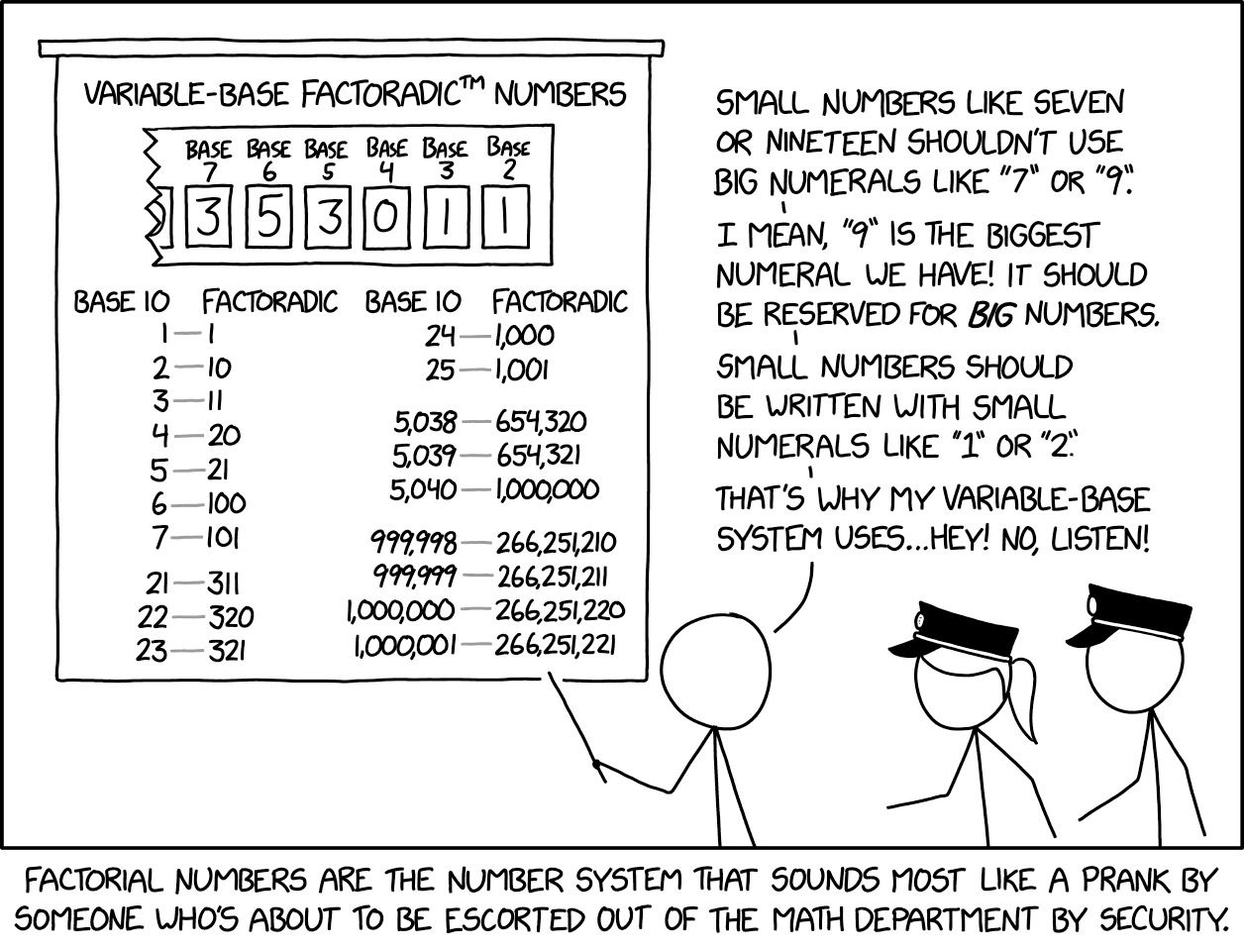Finally, a system that uses more information to express less information.
xkcd
A community for a webcomic of romance, sarcasm, math, and language.
According to this article, the factoradical system gets efficient for numbers larger than 20!, but i guess this here is a shining example of ~~less is~~ more is less
It begins to improve related to regular base-10 after, well, 10!, but it takes a while to recover for lower base numbers before that.
I fell like this one really needs the explainxkcd and I still don’t get it 🤣
The idea is, each number is expressed as a sum of n factorials, with n being the number of digits in the number post-conversion. You start with the highest factorial that you can subtract out of the original number and work your way down.
1 becomes 1, because 1 = 1!, so the new number says "1x(1)".
2 becomes 10, because 2 = 2!. The new number says "1x(2x1) + 0x(1)".
3 becomes 11, because it's 2 + 1. The new number says "1x(2x1) + 1x(1)".
21 becomes 311: 4! is 24, so that's too big, so we use 3!, which is 6. 3x6 = 18, so our number begins as 3XX.
That leaves 3 left over, which we know is 11. The new number says "3x(3x2x1) + 1x(2x1) + 1x(1)".
I appreciated them correcting Randall's bad alt-text math - he was off by a power of ten!
Good grief, it's far too early in the morning for this sort of thing. My brain hurts now.
This is cursed, haha
What's the point of such a system ?
Hum... Have you checked what site it's on?
Idk trolling
yes
0 = 0
1 = 1
2 = 10
3 = 11
4 = 20
5 = 21
6 = 100
101, 110, 111, 120, 121,
200, 201, 210, 211, 220, 221, 300, 301...
Amidoinitrite
This is actually a pretty cool idea.
Not really. The reality is that the only real metric for the utility of a notation is the speed of computation. A constant positional notation system is the most efficient, then you just optimise for a base whose multiplication table can be memorised (27 is a good one). Many people are under the impression that highly composite bases are better, but the reality is that it only optimises for euclidean division which is far out weighed by multiplication and addition (and can be easily computed using them).
Well I didn't say practical or efficient, it's just a cool idea :)
